July 4th Safety Tips for Pets [Updated 2024]
July 4th is a time for celebration, but it can be stressful for our furry friends. Fireworks, loud parties, and crowds can pose serious risks to pets.
It’s crucial to take steps to ensure their safety during these festivities.
In this post, we’ll share essential tips to keep your pets calm and secure. Whether you’re a new pet owner or a seasoned pro, these insights will help you enjoy the holiday while keeping your pets safe and happy.
Understanding the Risks
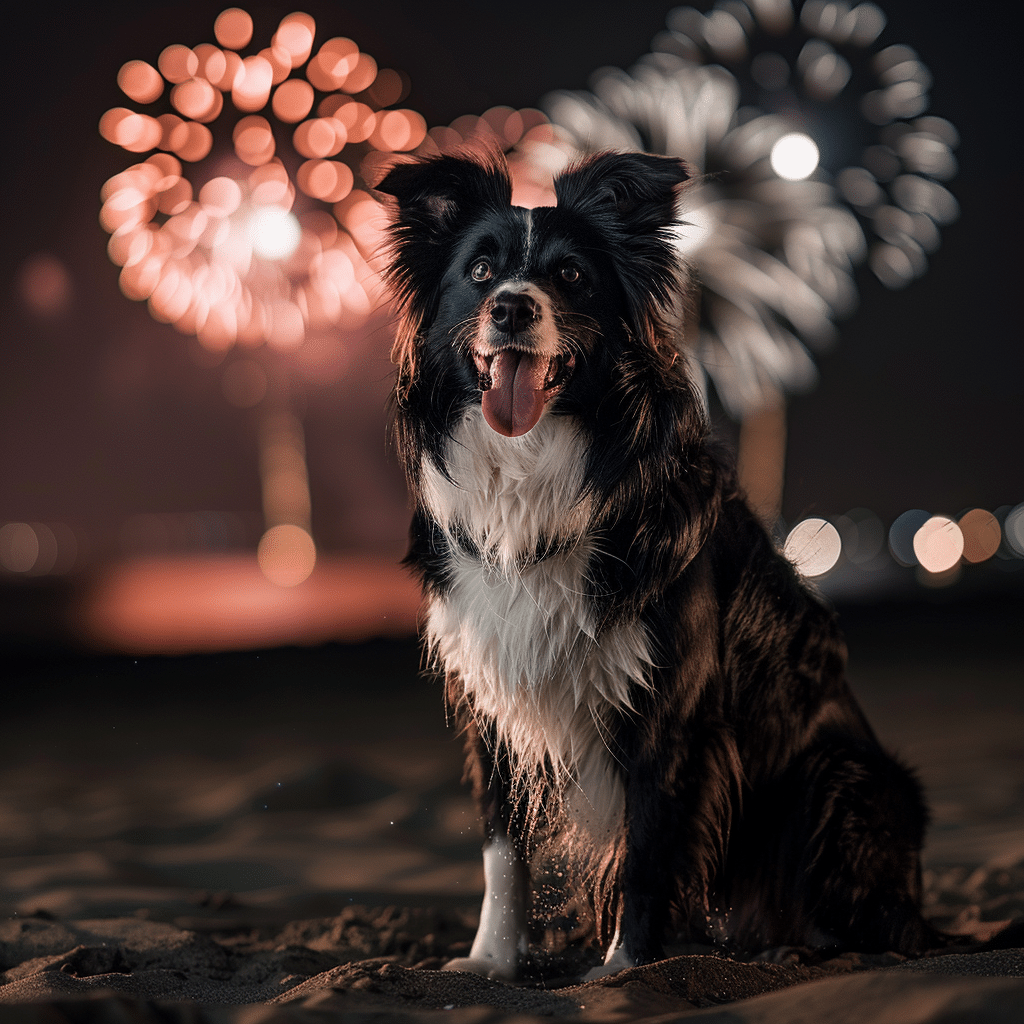
Celebrating July 4th is great fun for families, but it can be a stressful and sometimes dangerous day for pets.
Being aware of the different risks will help you keep your furry friends safe and calm. Let’s look at some specific dangers that July 4th celebrations can pose to pets.
Fireworks
Fireworks are a central part of July 4th festivities, but they can be extremely stressful for pets. The loud noises and bright lights can cause anxiety and fear, leading to panic and sometimes dangerous behavior.
- Noise Anxiety: Pets have sensitive hearing, and the loud booms of fireworks can scare them. It’s common for pets to shake, hide, or try to escape when they hear fireworks.
- Physical Dangers: If pets come into contact with fireworks, they can get injured. Fireworks contain chemicals that can be toxic if ingested and can cause burns or injuries if they explode near your pet.
Barbecues and Cookouts
Barbecues and cookouts are staple activities on July 4th, but they pose their own set of risks for pets.
- Toxic Foods: Many barbecue foods are harmful to pets. Foods like onions, garlic, chocolate, and alcohol can make your pet sick. Even foods that are safe for humans can upset your pet’s stomach.
- Open Flames: Pets might accidentally knock over grills or get too close to open flames, leading to burns or fires. Keep a close eye on your pets and make sure they stay a safe distance away from the grill.
Outdoor Activities
Outdoor celebrations mean more chances for pets to escape or get lost. Crowds, open gates, and unfamiliar surroundings can all spell trouble.
- Escaping: During parties, pets might find an open door or gate and run away. The excitement and noise can lead them to bolt.
- Getting Lost: With so many people around, it’s easy for pets to wander off and get lost. Make sure your pet has proper ID tags and consider a microchip for added safety.
By understanding these risks, pet owners can take important steps to protect their furry family members during July 4th activities. Stay aware, stay prepared, and ensure a safe celebration for all.
Pre-Event Preparations
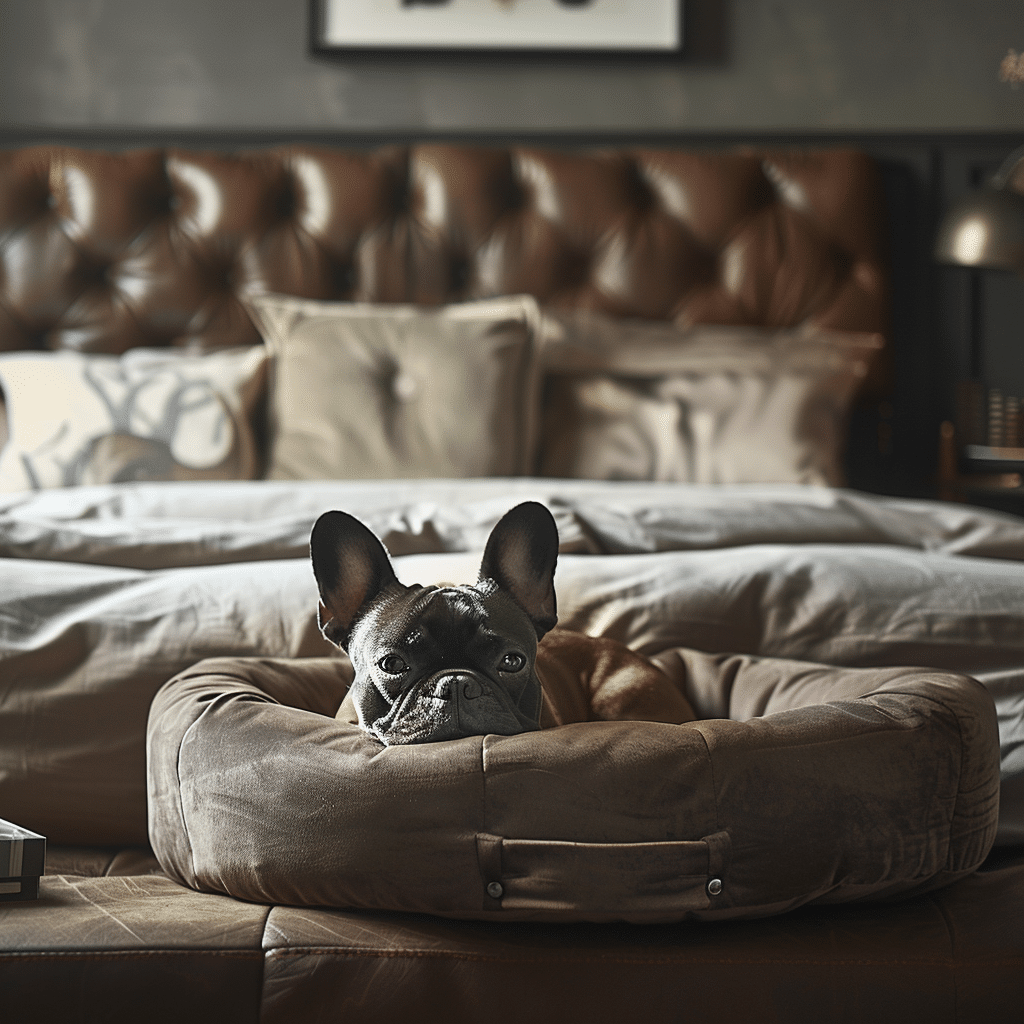
Preparing ahead of time can make a big difference in how your pet experiences July 4th. From creating a safe space to updating identification, these steps can help ensure your pet remains calm and safe during the festivities.
Create a Safe Space
Setting up a quiet, secure area in your home can be a haven for your pet during the noisy celebrations. Choose a room that is away from windows and doors to muffle the sound of fireworks and parties outside.
- Soft Bedding: Add comfortable beds and blankets to provide a cozy retreat.
- Familiar Items: Include favorite toys or a piece of clothing with your scent to comfort your pet.
- Low Lighting: Dim the lights or use blackout curtains to create a calming environment.
By offering a designated safe zone, you give your pet a place to escape the chaos and feel secure.
Update Identification
Ensuring your pets have updated identification is crucial in case they get lost amidst the excitement. Even the most careful owners can experience a pet escape.
- ID Tags: Check that your pet’s ID tags have your current phone number and address.
- Microchip Information: Ensure the information on your pet’s microchip is up-to-date. This can be a lifesaver if they lose their collar and tags.
- Local Contact: Consider adding the contact information of a nearby friend or family member who can help if you are unreachable.
Taking these steps can significantly increase the chances of a lost pet being returned quickly.
Exercise and Feeding
Exercising and feeding your pets at the right times can help them remain calm during the festivities.
- Exercise Early: Walk or play with your pets earlier in the day to tire them out. A tired pet is more likely to rest and feel less anxious.
- Feeding Schedule: Feed your pets before the fireworks and parties start. A full stomach can make them feel more relaxed and less agitated.
These activities not only help reduce anxiety but also provide a routine that can be comforting when things get hectic.
By focusing on these pre-event preparations, you can make July 4th a more comfortable experience for your pets.
Your Ultimate Pet First Aid Checklist
Be Prepared, Stay Calm, and Keep Your Pet Safe
Emergencies can happen when we least expect them, and being prepared can make all the difference. This comprehensive Pet First Aid Checklist is designed to equip you with the knowledge and tools you need to respond quickly and effectively.
Download your checklist now and gain peace of mind knowing you're ready to handle any pet emergency with confidence.
During the Celebrations
Keeping your pet safe during July 4th celebrations involves some smart planning and a bit of extra care. Here are some effective strategies to ensure your furry friends stay happy and secure while you enjoy the festivities.
Managing Noise
Fireworks can be especially stressful due to their loud, unpredictable noises. You can help your pet by creating a soothing atmosphere inside your home.
- Play Calming Music: Soft, slow music can help drown out the loud booms and create a serene environment.
- White Noise Machines: These can be a great investment to mask the chaotic sounds outside. White noise machines produce consistent sound levels that can help your pet relax.
- Television or Radio: Keeping the TV or radio on at a moderate volume can help distract your pet from the noise of fireworks.
These simple measures can help keep your pet calm and reduce anxiety during the loudest parts of the celebrations.
Keeping Pets Indoors
It’s essential to keep your pets indoors during July 4th festivities to prevent them from running away or getting hurt.
- Secure All Entry Points: Close windows and doors to minimize noise and prevent escapes. Make sure they are locked or latched securely.
- Create a Cozy Spot: Prepare a comfortable area with their favorite bed, toys, and some treats to keep them occupied.
- Avoid Outdoor Time: Resist the urge to let them outside, even if they seem curious. The chaos and noise can easily make them panic and run off.
By keeping your pets indoors, you significantly reduce the risk of them getting lost or injured.
Monitoring Pets
It’s important to keep an eye on your pets to ensure they are not experiencing extreme stress or distress during the celebrations.
- Regular Check-ins: Spend time with your pets and check on them frequently. Look for signs of stress such as excessive panting, pacing, or hiding.
- Comfort and Reassurance: Offer lots of love and reassurance. Simply being there with them can be very comforting.
- Access to Water: Make sure they have plenty of fresh water available. Staying hydrated can help keep them calm.
By monitoring your pets closely, you can quickly address any signs of distress and keep them feeling safe and secure during the festivities.
Reminder: Next Time
Always be proactive in considering your pet’s needs during celebrations. A little preparation and attention can go a long way in ensuring a stress-free experience for your furry friends.
Professional Help and Resources
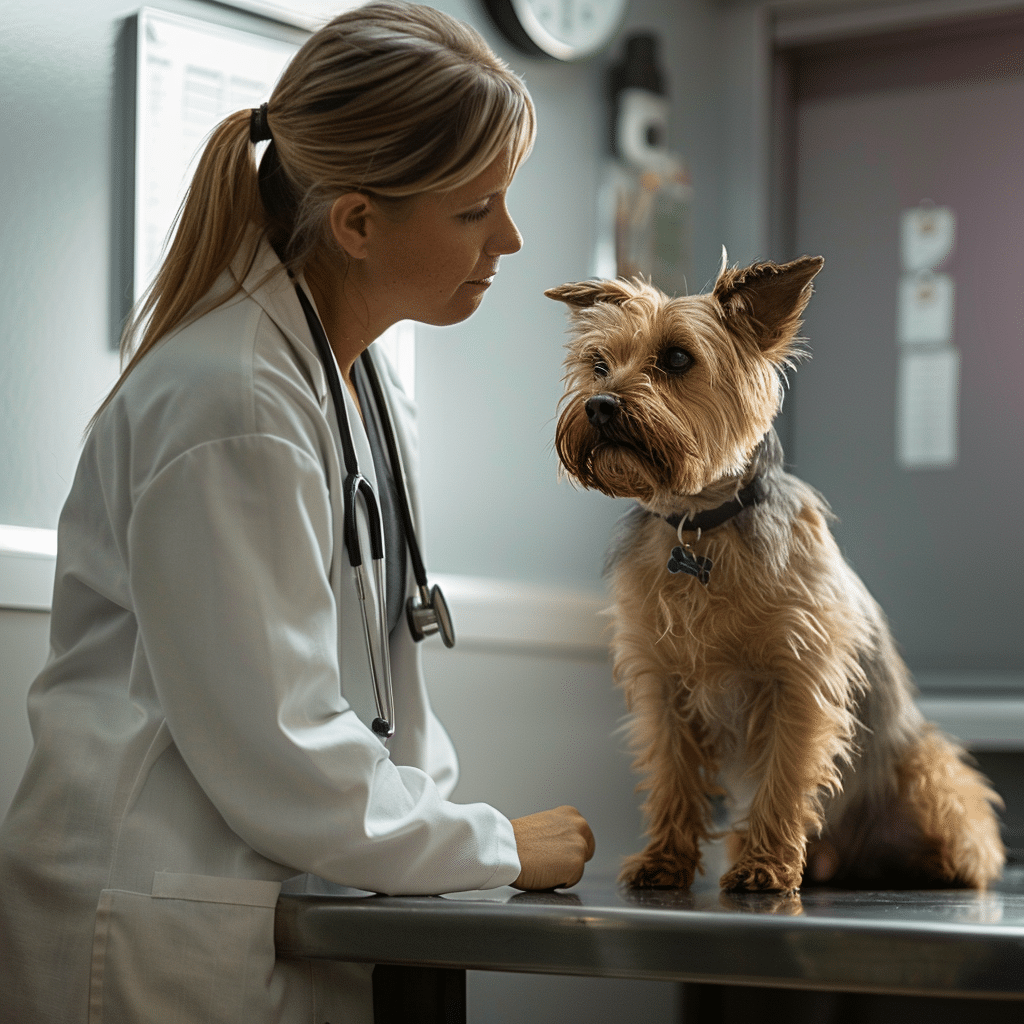
While you can take many steps to keep your pets calm and safe during July 4th, sometimes professional help is needed. Knowing when to seek veterinary assistance or behavioral specialists can make a big difference for your pet’s well-being.
Veterinary Assistance
Pets can sometimes show signs that they need immediate veterinary care, especially during stressful events like July 4th celebrations. Knowing what to look for can help you act quickly and effectively.
Signs Your Pet Needs Veterinary Care
- Excessive Panting or Drooling: If your pet is panting heavily or drooling more than usual, it could be a sign of stress or overheating.
- Vomiting or Diarrhea: These symptoms can indicate a reaction to anxiety, food ingestion, or even poisoning from fireworks or harmful foods.
- Lameness or Limping: If your pet is limping, it might have an injury that needs attention.
- Unusual Behavior: Changes like hiding, aggression, or lethargy can signal a problem.
If you notice any of these signs, it’s important to contact your veterinarian right away. Many veterinary clinics have emergency services available, and some areas offer 24-hour emergency animal hospitals.
How to Contact Emergency Services
- Keep Numbers Handy: Always have your veterinarian’s contact information, including emergency numbers, readily available.
- Know the Locations: Familiarize yourself with the nearest emergency animal hospitals and their hours of operation.
- Emergency Kits: Consider having an emergency kit for your pet, complete with essential supplies, medications, and instructions.
Quick action can save your pet’s life, so don’t hesitate to seek professional help if you think your pet is in distress.
Behavioral Specialists
Fireworks and celebrations can take a toll on your pet’s mental health. Behavioral specialists can help manage anxiety and stress, ensuring your pet remains as calm and comfortable as possible.
Role of Behavioral Specialists
- Anxiety Management: Specialists can develop strategies tailored to your pet’s needs to help manage and reduce anxiety.
- Behavior Modification: If your pet has recurring issues with fireworks or other loud noises, a behavioral specialist can work on modifying these reactions over time.
- Training: They provide training sessions that teach pets to cope with stressful situations and desensitize them to specific triggers.
How They Can Assist
- Consultations: Arrange a consultation with a behavioral specialist before July 4th to discuss your pet’s anxiety issues.
- Custom Plans: Specialists create personalized plans including exercises and techniques to keep your pet calm.
- Resources: They often provide resources, like calming tools or pheromone diffusers, which can help reduce stress levels for your pet.
By working with behavioral specialists, you can better prepare your pet for the loud activities and stressors that come with July 4th celebrations, helping them stay calm and feel secure.
Taking proactive steps and knowing when to call in the professionals can make all the difference in ensuring a safe and stress-free environment for your pets during holiday festivities.
Your Ultimate Pet First Aid Checklist
Be Prepared, Stay Calm, and Keep Your Pet Safe
Emergencies can happen when we least expect them, and being prepared can make all the difference. This comprehensive Pet First Aid Checklist is designed to equip you with the knowledge and tools you need to respond quickly and effectively.
Download your checklist now and gain peace of mind knowing you're ready to handle any pet emergency with confidence.

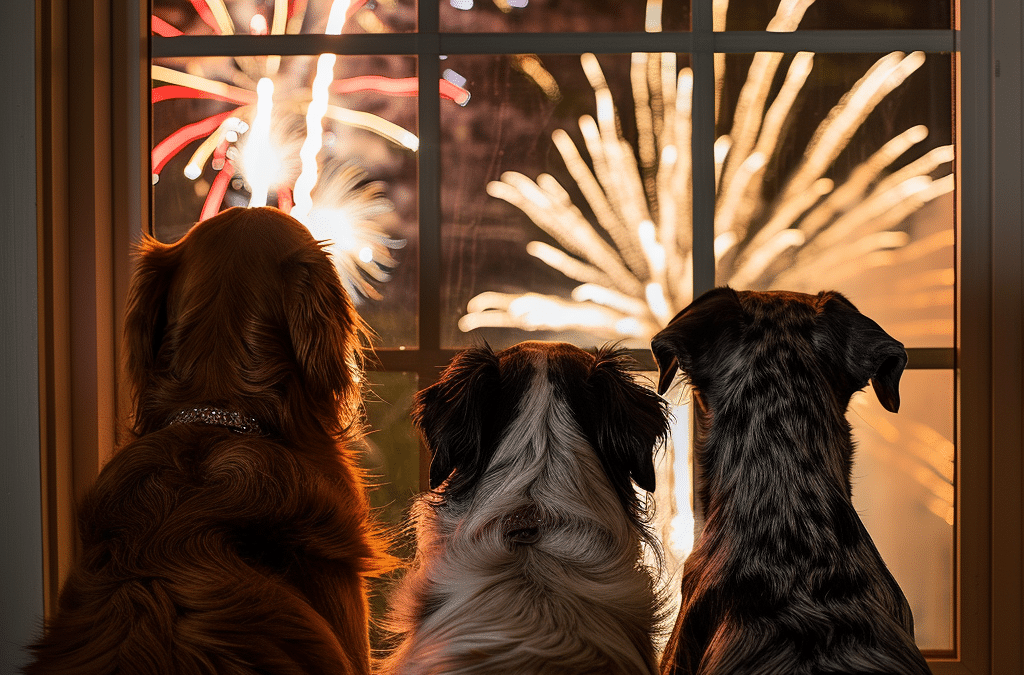
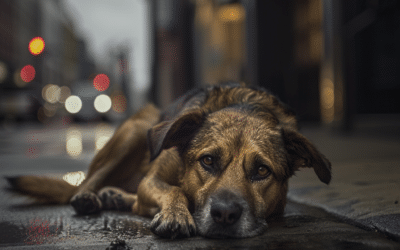

Recent Comments